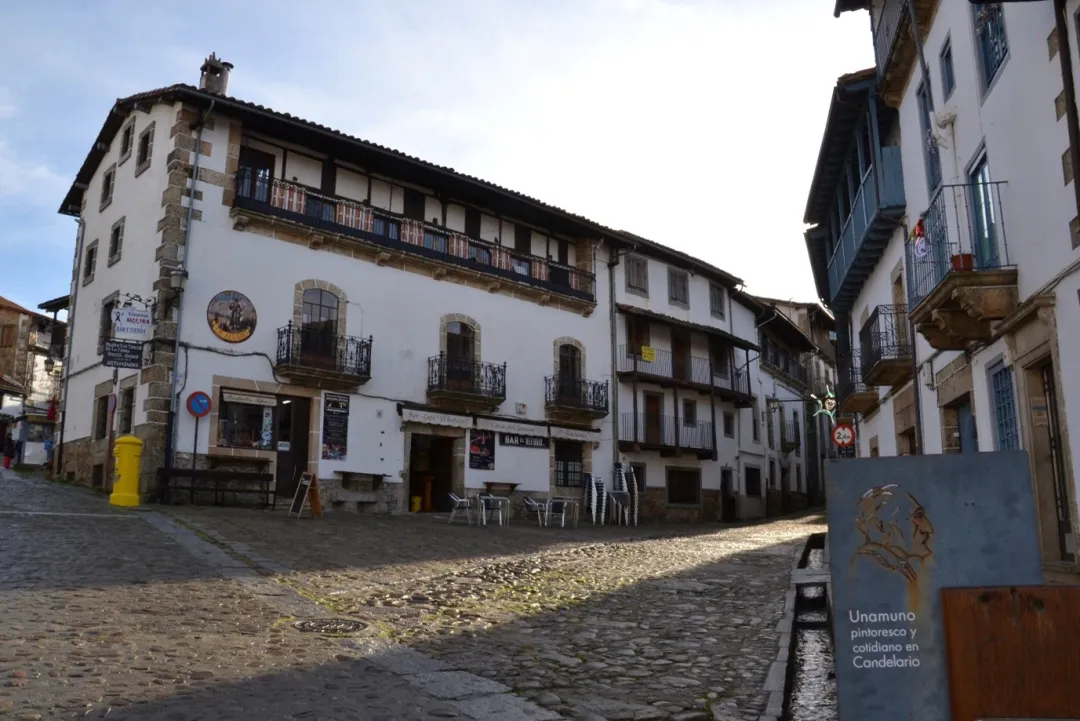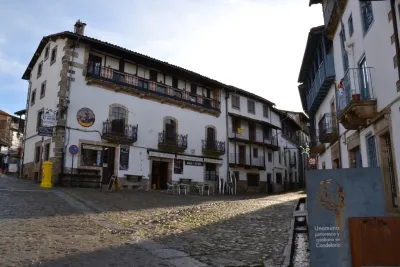Summary
The ‘Generational Business Transfer Plan for Rural Salamanca’ facilitates the continuity of economically viable rural businesses by matching retiring owners with prospective entrepreneurs.
The project’s approach includes proactive business identification, digital outreach, and business fairs to connect potential buyers and owners. Since its launch in 2024, the initiative has successfully transferred 85 businesses out of a managed portfolio of 183, helping to preserve services and employment in rural areas.
Results
-
Managed a portfolio of 183 rural businesses, with 85 successfully transferred between January 2024 and April 2025, achieving an average of five transfers per month.
The transferred businesses include diverse sectors such as: hospitality; food production; services and commerce; primary sector; and industrial activities. Some of the most recent successful transfers include the sale of a hostel, rental of a meat processing facility, sale of a taxi license, transfer of a livestock farm, and lease of a municipal bar, all completed in February 2025.
- Attracted entrepreneurs from Salamanca as well as other regions, including Madrid, Toledo, Vizcaya, Ávila, and San Sebastián, highlighting the project’s capacity to appeal to both local and non-local investors.
- Maintained an active portfolio of 107 available businesses, continuously updated through proactive outreach and community engagement, adapting the offer based on new business opportunities.
- Held two business fairs in 2024: in La Alberca (13 April) and Villamayor (20 April), attended by 171 participants, including 33 business owners, resulting in 40 business meetings and seven advisory sessions.
- Achieved significant online engagement through social media, including nearly 1.5 million views on the project’s Facebook page within one month, significantly boosting the visibility of rural business opportunities.
- Raised awareness of rural entrepreneurship opportunities through extensive media coverage, including national television, radio, and print outlets, promoting the project’s impact and encouraging further participation.
Resources
Documents
Context
Rural Salamanca faces demographic challenges, including ageing populations and declining business continuity due to owner retirement. When rural businesses close, they leave behind not only economic gaps, but also the loss of vital services and employment opportunities. This accelerates depopulation and undermines community resilience.
One of the key challenges of entrepreneurship in rural areas is the initial set-up of the business. The services targeted by the initiative are already functioning, profitable, and have an established customer base, a leverage for the most complex aspects of getting started.
Objectives
- Identify and promote viable rural businesses in Salamanca, which are available for transfer; enhance the visibility of business opportunities through digital and in-person outreach;
- Encourage the revitalisation of rural businesses and prevent closure due to retirement by finding new owners to take over the existing productive facilities;
- Strengthen the local economy by maintaining services and employment;
- Promote rural Salamanca as a territory of opportunity for entrepreneurship.
Activities, key actors, and timeline
The ‘Generational Business Transfer Plan for Rural Salamanca’ is set up, financed, and promoted by the Provincial Council of Salamanca, implemented by the private firm ‘Popolo Cultural Consulting’.
The project starts by mapping and identifying viable rural businesses at risk of closure or recently closed, with a particular focus on those lacking a digital presence. The information gathering stage involves local councils, community leaders, and rural associations, while outreach – through phone calls, mobile messages and posters – is carried out by the project team to build an accurate and comprehensive business portfolio.
The next step is profiling and cataloguing businesses into a regularly updated database.
With the business portfolio in place, digital outreach becomes a core component of the initiative, including:
- targeted social media campaigns on Facebook and Instagram to promote available businesses;
- outreach to existing networks and social media groups related to hospitality, rural tourism, artisanal production, and rural entrepreneurship.
In-person business fairs are organised to facilitate direct interaction between business owners and prospective entrepreneurs. These networking opportunities feature presentations of businesses, printed catalogues of current opportunities, advisory sessions on the business transfer process and practical tips for new owners, and guided sessions to create personal connections. The fairs are essential in building trust and fostering hands-on engagement between stakeholders.
Active communication and follow-up guide interested parties through the business transfer process. Current business owners are encouraged to mentor new entrepreneurs during the initial handover period in order to support sustainable transitions, ensure continuity and build a supportive environment.
Success factors/lessons learnt
- The project’s success is rooted in its proactive and community-based approach, ensuring that economically viable businesses are not lost due to retirement.
- Leveraging social media and face-to-face engagement has proven highly effective, with online visibility driving most business transfers. Integrating local knowledge through direct collaboration with councils and community leaders has also enhanced project credibility and reach.
- Replicability is ensured through the model’s adaptability and low-cost approach, making it feasible for other rural regions. Financial sustainability is achieved by combining public funding with local partnerships, while environmental sustainability is maintained by minimising resource consumption and emissions during activities.
- Key lessons include rapid response to inquiries, maintaining strong institutional support, and utilising both digital and face-to-face approaches to maximise reach and engagement.
Contacts
- Antonio Labrador Nieto, antonio.labrador@lasalina.es, +34 652 436 154
- Ángel Poveda Polo, popoloconsultoracultural@gmail.com, +34 666 278 043

